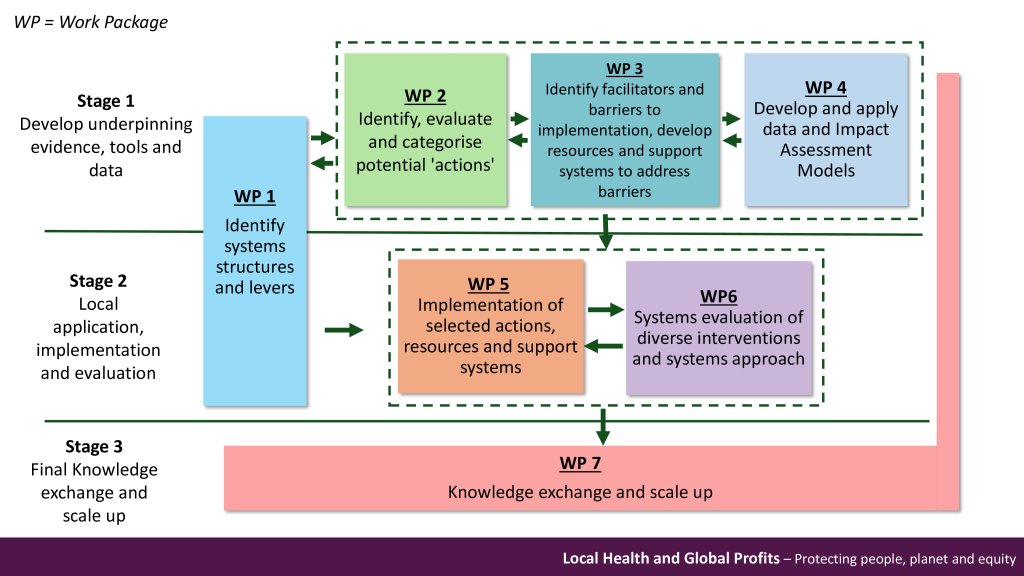Objectives
Operating at local level, the primary objectives of this research consortium are to:
use an integrated systems approach to better understand, identify and prioritise potential areas of action to address upstream (commercial and interlinked social, political and economic) determinants of health
critically examine evidence for actions that can address upstream (commercial) determinants of health, categorising them to help identify those that require minimum agency, can promote health and equity at scale and act on system levers
explore facilitators and barriers to the effective implementation of such actions and how these can most effectively be addressed
co-develop appropriate resources (tools and training), support systems and locally relevant evidence that will enable local actors to overcome these barriers
comprehensively assess the anticipated health and economic impacts of actions and whether changing the paradigm of the impact assessment approach (for example changing the underlying economic model) changes their measured effectiveness and how they are perceived and prioritised by policy-makers
compile novel large scale data resources for use at local level to enable this
enable implementation of actions, including policy change, by providing appropriate support systems
undertake complex systems evaluations of the selected actions, resources and support systems
scale up and exchange knowledge to promote equitable population health improvement.
Work packages
Systems approaches to commercial determinants of health and equity: project design

WP1: Identifying System Structures and Levers.
WP2: Actions: identifying, evaluating and categorising options for Local Authorities to address upstream Commercial Determinants of Health.
WP3: Understanding facilitators and barriers to upstream action and developing resources to address barriers.
WP4: Develop and implement tools to assess health, economic and inequality impacts of actions.
WP5: Implementation.
WP6: Evaluation.
WP7: Knowledge exchange and scale-up.

